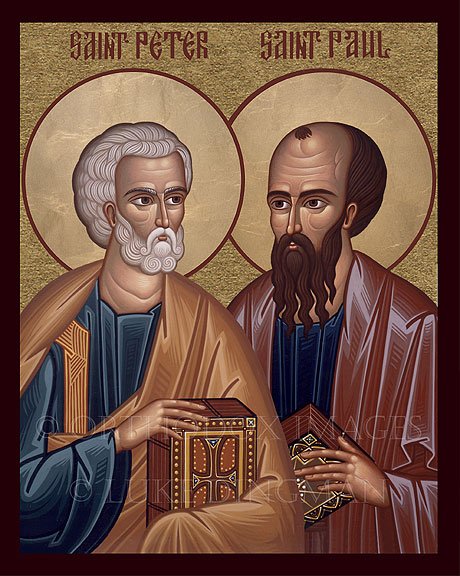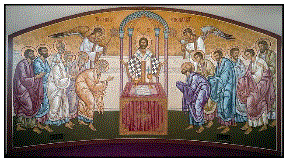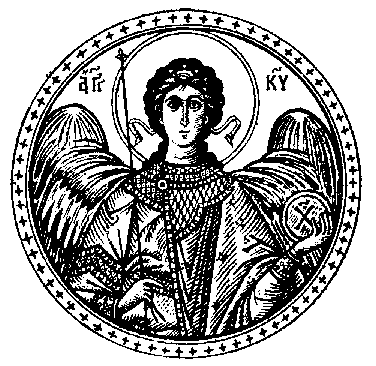On this third weekend after the feast of Pentecost, we also celebrate the feast of the two great Apostles, Peter and Paul. These two Apostles stand out in Christian history because of the roles that they played in the establishment of the Jesus movement as a new religion. Paul, even more than Peter, saw that the teachings of Jesus offered a new image of God and suggested a new approach to the worship of God. This new approach resulted a in a new religion. I say this because religions are centered around a particular form of worship of God which is linked to our image of God.
The Christian image of God is that He is loving and calls us, His children, to return His love. The Christian image of God is that He is in communion with His creation. Therefore the rituals of our eligion are centered around the idea of communion with God. It is the primary focus of our Christian worship.
In addition to a particular image of God, religions are also built around particular ideas about human life. Paul expresses one image of life which, I believe, is deeply embedded in our Christian faith. Paul states in his letter to the Romans, which we use as our Epistle reading for today:
We know that affliction makes for endurance, and endurance for tested virtue, and tested virtue for hope. And this hope will not leave us disappointed, because the love of God has been poured out in our hearts through the Holy Spirit who has been given to us.
We do well to consider Paul’s idea of human life. He does not see the challenges of life as punishments but as opportunities to grow in our mental attitudes.
When we pair Paul’s words with the words of today’s Gospel, we see the attitude about life that Christianity supports and encourages. Matthew writes:
Which of you by worrying can add a moment to his life-span. Learn a lesson from the way the wild flowers grow… Enough, the, of worrying about tomorrow. Let tomorrow take care of itself.
What absolutely sage advice. Life will present all forms of challenge. Challenges are a part of life. They are opportunities meant to grow in our understanding of the meaning and purpose of life. It takes work, however, to develop such an attitude about life’s challenges. We humans do not like change and the challenges of life force us to change. We can, of course, refuse to change which usually results in suffering and mental anguish.
If, however, we adopt the attitude that life is designed to constantly engage us in personal change, then the challenges of life are not so difficult and we know that they can truly lead us to a deeper understanding of the meaning and purpose of life. It is all up to us and how we approach life’s events. If we believe our God loves us and that nothing in life is meant to hurt us or destroy us, then all the events of life are moments of grace. Life presents the challenges that each of us need to change and grow.





